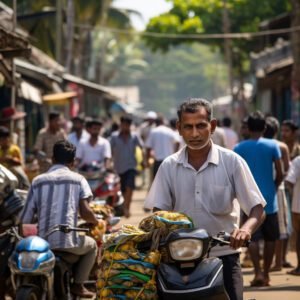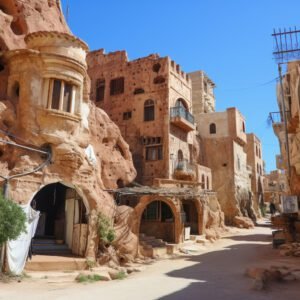Introduction
When traveling to a new country, it is essential to familiarize yourself with the local rules and cultural norms. Not only does this ensure a smooth and respectful experience, but it also helps you avoid inadvertently breaking any laws or offending the locals. In this article, we will explore the rules and cultural norms in Somalia, providing you with valuable insights to help you navigate this unique destination with ease.
Key Elements
Element 1: Dress Code
Somalia is a predominantly Muslim country, and Islamic traditions heavily influence the local culture. It is important to dress modestly and respectfully, particularly in public areas and religious sites. Women are expected to cover their shoulders, chest, and legs, and it is advisable to carry a scarf to cover your head when entering mosques or other religious establishments.
Element 2: Respect for Elders
In Somali culture, elders hold a position of great respect and authority. It is customary to greet elders with a traditional Somali handshake, which involves clasping your right hand with your left hand while exchanging pleasantries. Addressing older individuals with courtesy and deference is highly appreciated and shows your respect for the local customs.
Element 3: Hospitality and Qat Chewing
Somalis are known for their warm hospitality and welcoming nature. It is common for locals to invite visitors into their homes for meals or tea as a gesture of friendship. Accepting these invitations demonstrates your appreciation for Somali culture and fosters meaningful connections. Additionally, be aware that qat, a mild narcotic leaf, is a significant part of Somali culture. While it is legal to chew qat in Somalia, it is advisable for travelers to avoid partaking in this activity.
Element 4: Photography Restrictions
In many regions of Somalia, particularly those with a significant military presence, photography is strictly regulated. It is recommended to seek permission before taking pictures of individuals, government buildings, military installations, or other sensitive areas. This not only ensures compliance with local laws but also demonstrates respect for the privacy and security concerns of the Somali people.
Element 5: Security and Safety
Somalia has experienced political instability and ongoing conflict in various regions. Travelers should exercise caution and stay updated on the current situation before planning a trip. It is advisable to check travel advisories, register with your embassy or consulate, and seek guidance from trusted locals or tour operators for safe locations and routes. It is crucial to maintain personal safety by avoiding large gatherings, high-profile events, and areas with a high risk of criminal activity.
Tips for Traveling
While visiting Somalia, it is essential to be well-prepared and informed. Here are some practical tips to enhance your travel experience:
- Research the Destination: Learn about Somalia’s history, geography, and culture before your trip. Understanding the country’s background will give you valuable insights into its customs and traditions.
Observe Local Etiquette: Respect local customs by following cultural norms, such as removing your shoes before entering someone’s home and avoiding public displays of affection.
Language: Although English is spoken and understood by many Somalis, learning a few basic phrases in Somali, such as greetings and thank you, will be appreciated by the locals.
Currency and Payments: The official currency of Somalia is the Somali shilling. While credit cards may be accepted in larger establishments, it is advisable to carry local currency in smaller denominations for convenience, especially in more remote areas.
Health and Safety: Prioritize your health by ensuring you have up-to-date vaccinations and travel insurance. Additionally, pack a basic first-aid kit and take appropriate precautions against mosquito-borne illnesses.
Transportation: Familiarize yourself with the local transportation options, such as taxis or public buses, and establish the standard fares to avoid potential overcharging. It is advisable to arrange transportation through trusted sources or reputable tour operators.
Responsible Tourism: Respect the environment and local communities by practicing responsible tourism. Avoid littering, support local businesses, and be mindful of the impact of your actions on the local ecosystem and culture.
Disclaimer: This article is intended as a general guide to understanding the rules and cultural norms in Somalia. It is crucial to seek professional advice and consult official sources, such as government websites or local authorities, for the most accurate and up-to-date information before your trip. Following the rules and cultural norms of the country you are visiting demonstrates respect for the local customs and helps ensure a positive and memorable experience.


